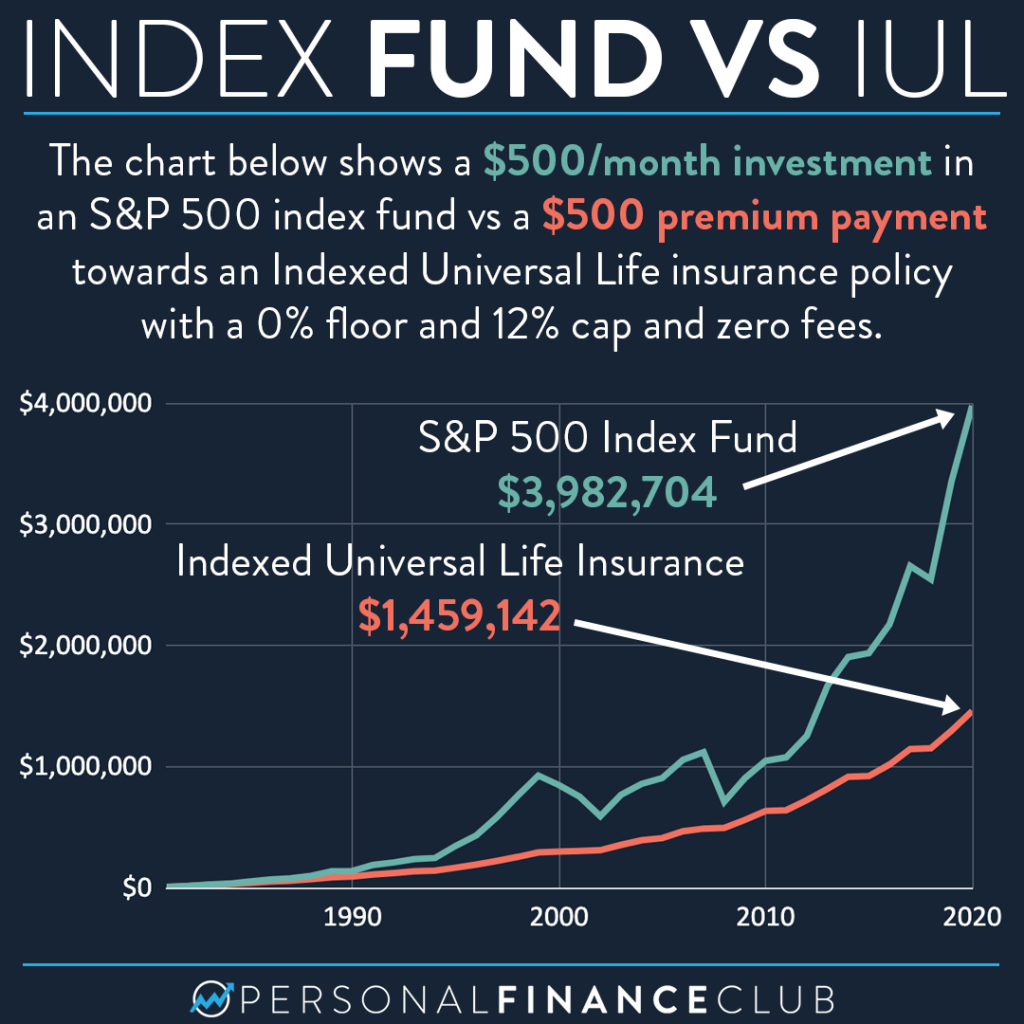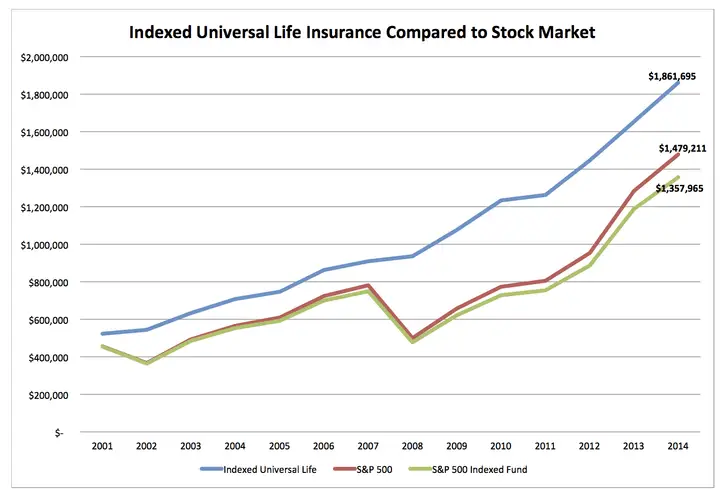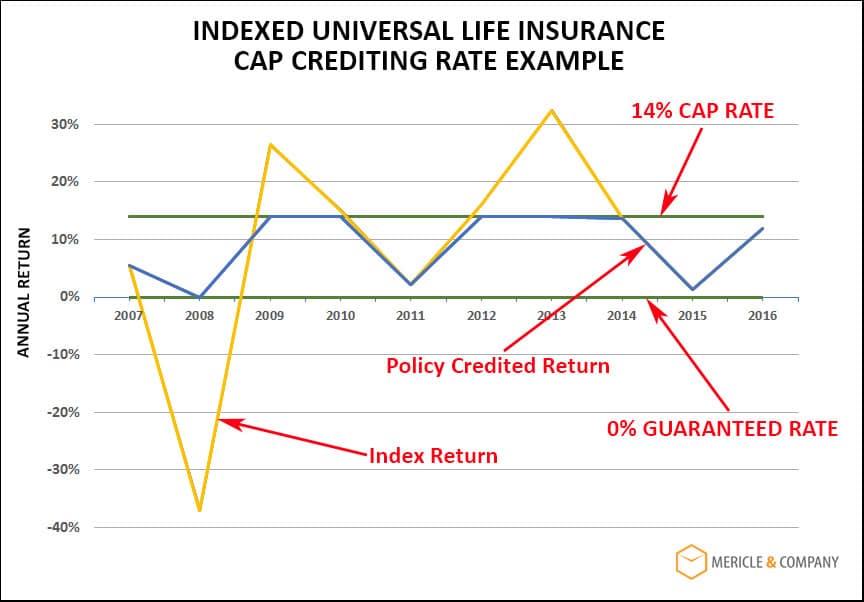All Categories
Featured
Table of Contents
Do they compare the IUL to something like the Lead Total Stock Market Fund Admiral Shares with no load, a cost proportion (ER) of 5 basis factors, a turn over proportion of 4.3%, and an extraordinary tax-efficient record of distributions? No, they compare it to some terrible actively managed fund with an 8% lots, a 2% EMERGENCY ROOM, an 80% turnover ratio, and a terrible record of temporary capital gain circulations.
Mutual funds usually make annual taxed circulations to fund proprietors, also when the value of their fund has actually gone down in worth. Mutual funds not just need earnings coverage (and the resulting annual taxation) when the shared fund is rising in worth, yet can likewise impose revenue taxes in a year when the fund has actually gone down in value.
That's not just how mutual funds function. You can tax-manage the fund, gathering losses and gains in order to reduce taxed circulations to the investors, yet that isn't in some way mosting likely to change the reported return of the fund. Only Bernie Madoff kinds can do that. IULs prevent myriad tax traps. The possession of mutual funds might need the mutual fund owner to pay approximated tax obligations.

IULs are easy to place to ensure that, at the proprietor's death, the beneficiary is exempt to either earnings or estate taxes. The exact same tax decrease strategies do not function virtually too with shared funds. There are various, often expensive, tax obligation catches related to the timed trading of mutual fund shares, traps that do not relate to indexed life insurance policy.
Opportunities aren't really high that you're mosting likely to undergo the AMT because of your mutual fund circulations if you aren't without them. The remainder of this one is half-truths at finest. While it is real that there is no earnings tax due to your beneficiaries when they acquire the profits of your IUL plan, it is likewise true that there is no income tax due to your beneficiaries when they inherit a mutual fund in a taxed account from you.
Mortality Charge For Universal Life Policies
There are far better ways to prevent estate tax obligation problems than acquiring financial investments with low returns. Common funds may cause earnings taxes of Social Safety and security benefits.

The growth within the IUL is tax-deferred and might be taken as free of tax revenue via car loans. The policy owner (vs. the common fund manager) is in control of his/her reportable revenue, therefore allowing them to minimize or perhaps get rid of the taxes of their Social Protection benefits. This is terrific.
Here's one more minimal problem. It's real if you acquire a shared fund for say $10 per share simply before the circulation date, and it distributes a $0.50 distribution, you are then going to owe tax obligations (most likely 7-10 cents per share) in spite of the fact that you have not yet had any kind of gains.
In the end, it's actually about the after-tax return, not how much you pay in tax obligations. You're also most likely going to have even more money after paying those tax obligations. The record-keeping needs for having mutual funds are significantly a lot more intricate.
With an IUL, one's documents are kept by the insurance provider, copies of yearly declarations are mailed to the proprietor, and distributions (if any type of) are totaled and reported at year end. This one is also sort of silly. Obviously you need to maintain your tax obligation documents in case of an audit.
Iul Online
All you need to do is shove the paper into your tax folder when it turns up in the mail. Barely a reason to buy life insurance. It's like this man has never purchased a taxable account or something. Mutual funds are typically component of a decedent's probated estate.
On top of that, they undergo the hold-ups and expenses of probate. The proceeds of the IUL policy, on the various other hand, is constantly a non-probate circulation that passes outside of probate straight to one's called recipients, and is for that reason not subject to one's posthumous lenders, unwanted public disclosure, or comparable hold-ups and expenses.
We covered this set under # 7, however just to summarize, if you have a taxable common fund account, you have to place it in a revocable count on (and even easier, use the Transfer on Fatality classification) in order to avoid probate. Medicaid disqualification and life time income. An IUL can provide their owners with a stream of revenue for their entire lifetime, despite how long they live.

This is useful when organizing one's affairs, and converting possessions to revenue prior to an assisted living facility confinement. Mutual funds can not be converted in a similar manner, and are often taken into consideration countable Medicaid properties. This is one more stupid one advocating that bad individuals (you recognize, the ones who need Medicaid, a federal government program for the inadequate, to spend for their assisted living home) should utilize IUL rather of common funds.
Principal Group Universal Life
And life insurance policy looks horrible when contrasted fairly against a pension. Second, people that have money to buy IUL over and beyond their retired life accounts are going to have to be awful at handling money in order to ever before qualify for Medicaid to pay for their nursing home prices.
Chronic and incurable disease rider. All policies will allow an owner's simple access to money from their policy, usually forgoing any type of surrender charges when such individuals experience a severe illness, need at-home treatment, or come to be constrained to a retirement home. Mutual funds do not provide a comparable waiver when contingent deferred sales charges still relate to a shared fund account whose owner requires to sell some shares to fund the expenses of such a keep.
Indexed Universal Life Unleashed
Yet you get to pay more for that advantage (cyclist) with an insurance coverage policy. What a large amount! Indexed global life insurance policy gives survivor benefit to the beneficiaries of the IUL proprietors, and neither the proprietor nor the beneficiary can ever shed cash because of a down market. Common funds give no such warranties or fatality advantages of any kind of kind.
Now, ask on your own, do you in fact need or want a survivor benefit? I definitely don't need one after I reach financial freedom. Do I desire one? I intend if it were affordable sufficient. Obviously, it isn't low-cost. Usually, a buyer of life insurance coverage pays for the real expense of the life insurance advantage, plus the costs of the plan, plus the profits of the insurer.
Nationwide Indexed Universal Life
I'm not completely certain why Mr. Morais threw in the entire "you can't lose cash" once again right here as it was covered fairly well in # 1. He simply intended to repeat the very best selling point for these points I mean. Again, you do not lose small dollars, yet you can lose real dollars, as well as face serious opportunity price as a result of reduced returns.

An indexed global life insurance coverage policy proprietor may trade their policy for a totally various policy without setting off income taxes. A common fund owner can not move funds from one shared fund business to another without selling his shares at the former (therefore setting off a taxable occasion), and buying brand-new shares at the last, typically based on sales charges at both.
While it is real that you can trade one insurance coverage for an additional, the factor that people do this is that the initial one is such a horrible plan that also after buying a new one and undergoing the very early, adverse return years, you'll still appear ahead. If they were sold the right plan the very first time, they should not have any kind of need to ever exchange it and undergo the very early, unfavorable return years once again.
Latest Posts
Universal Life Vs Term Insurance
Universal Life Surrender Value
Pros And Cons Of Indexed Universal Life Insurance